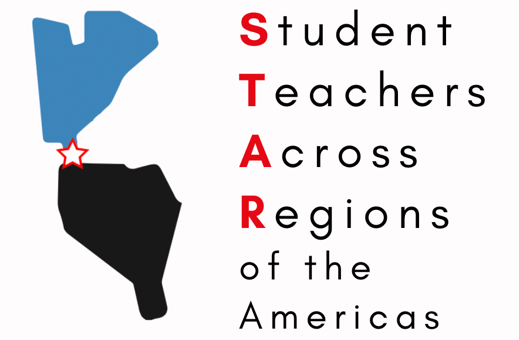The STAR Program
Creating Cross-Cultural Connections to Enhance Education
Despite the limitations of international travel during the COVID-19 pandemic, the UNC School of Education created a new global opportunity for students this semester: the Student Teachers Across Regions (STAR) of the Americas Virtual Exchange Program. The program is a virtual cross-collaborative between Human Development and Family Studies students at the University of North Carolina at Chapel Hill and education students at the Universidad San Francisco de Quito (USFQ). Facilitated by the UNC-Duke Consortium in Latin American & Caribbean studies, the program aims to enhance teacher expertise in the educational systems of Ecuador and the United States and to provide opportunities for education students to explore the culture of another country and learn how to incorporate global education into their classrooms.
The Schools of Education at UNC and USFQ have been working together to create study tours for students to the U.S. and Ecuador since 2018. Due to the cancellation of international travel due to the COVID-19 pandemic, faculty members Dr. Kristin Papoi (UNC) and Dr. Nascira Ramia (USFQ) were searching for a way to maintain the partnership between the universities. To address this concern, Corin Zaragoza Estrera of the UNC-Duke Consortium developed the STAR program to virtually connect students across the Americas, with the hope that participants can connect through study tours in 2021. “The goal of the STAR program is to provide future teachers with an international experience that will expand their worldview. We hope STAR Fellows can pass the lessons from this experience to their future students,” says Zaragoza Estrera.
A total of ten students from USFQ and UNC were selected as STAR Fellows. From September 2020 to May 2021, fellows will engage in cross-cultural communication training, professional development, and team projects with a partner from the other university. In response to the question of why he joined STAR, Paulo Yánez of USFQ says, “As an educator I am a strong believer in Critical Consciousness pedagogy. When you are surrounded by people who think and speak the same way about the same topics, there is no growth, for anybody honestly. . . A different perspective is essential for the development of society.” Sophie Therber of UNC looks forward to the opportunity to have a global experience in which new relationships can be formed. She states: “I have learned so much about community service, Latin America, youth development, and the power of education during my time at UNC, and I’m very excited to contextualize what I have learned.”
In order to gain a greater understanding of education and society as they relate to Latin America and the U.S., fellows will investigate topics such as indigenous and minority rights in schools, immigration, public support for teachers, and more. The STAR program hopes to cultivate an invaluable experience for the participants whose talents and dedication to collaboration are capable of having a positive impact in the classrooms of Ecuador, the United States, and beyond.
Written by Kierra Hyman, UNC Chapel Hill Class of 2021


